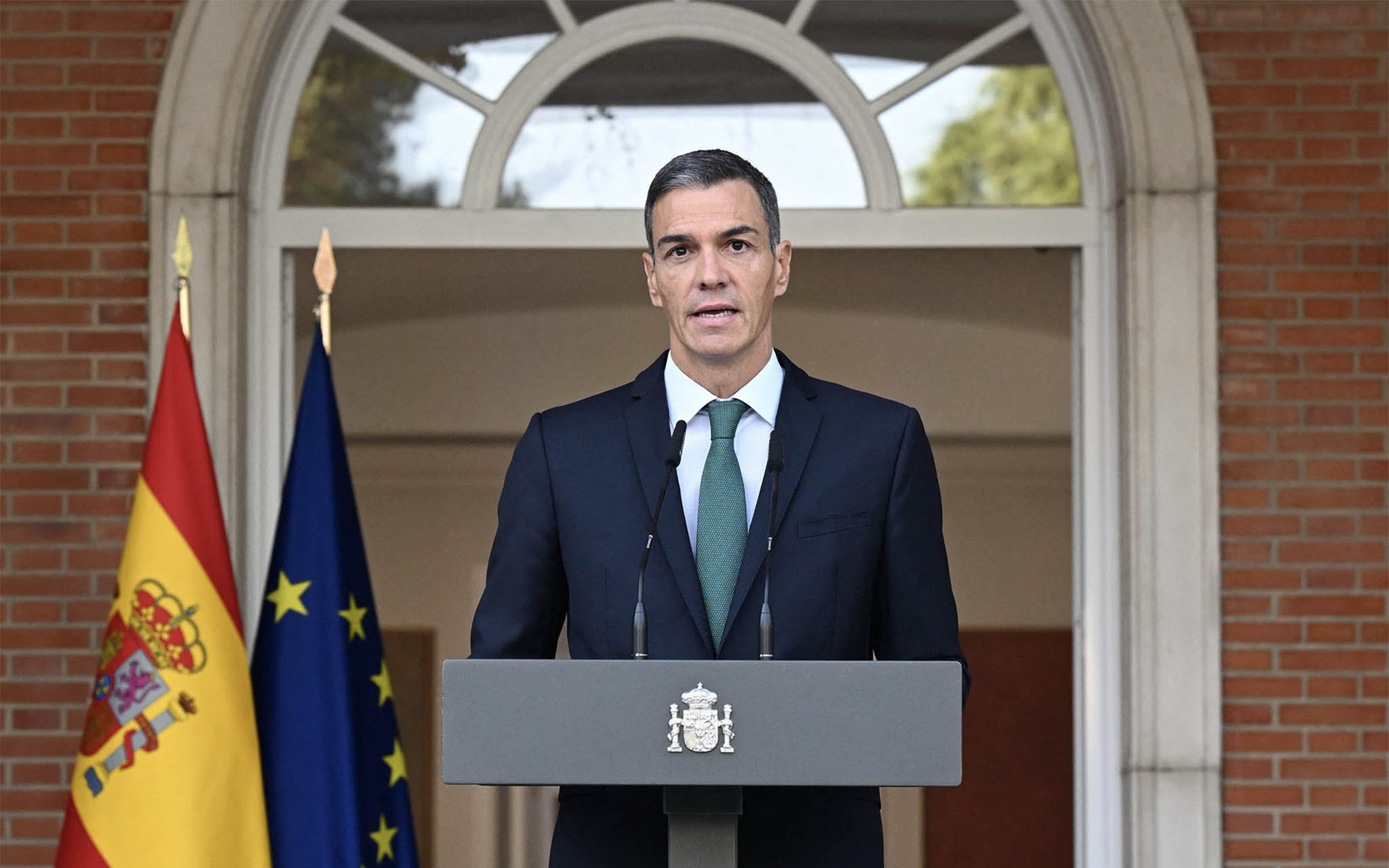


Spanish Prime Minister Pedro Sanchez said that his country cannot intervene to stop the war in Gaza because it does not possess nuclear bombs, according to reports in Spanish media quoting remarks he made to journalists while announcing sanctions against Israel on Monday.
Sanchez on Monday announced an arms embargo and partial import ban over Israel’s wartime conduct in Gaza, and said that the sanctions and other measures against Israel aimed to “stop the genocide in Gaza, pursue its perpetrators, and support the Palestinian population.”
The move set off an angry back-and-forth that culminated in Madrid pulling its envoy from Israel, but additional quotes that were not originally reported outside of Spanish media have Sanchez escalating his rhetoric and suggesting that the reason his country cannot stop the war in Gaza is due to its lack of game-changing military capabilities.
“Spain, as you know, doesn’t have nuclear bombs, nor aircraft carriers, nor large oil reserves,” Sanchez was quoted as saying during the Monday press event.
“We alone can’t stop the Israeli offensive,” he said. “But that doesn’t mean we won’t stop trying, because there are causes that are worth fighting for, even if winning them isn’t in our sole power.”
Sanchez’s remarks set off a storm within some segments of Spanish politics, with the leader of the far-right Vox party Santiago Abascal saying that the premier “would like to have nuclear weapons… but not to defend Spain. To defend Hamas.”
“A nuclear bomb on Tel Aviv? Is that what he intends to do?” asked a spokesman for the center-right Popular Party.
Sanchez, an outspoken critic of Israel, is the most senior European leader to have called the fighting in Gaza a “genocide.”
Spain’s government has prohibited sales and purchases of military equipment with Israel since the start of the war, and Sanchez’s recently announced measures would enshrine the prohibition in law.
His left-wing government broke with European allies last year by recognizing a Palestinian state, a move that infuriated Israel. Several European countries, including France and the UK, have since announced plans to recognize a Palestinian state next month.

The wide-reaching measures were condemned by Foreign Minister Gideon Sa’ar, who announced shortly ahead of Sanchez’s address on Monday that he would impose sanctions on two Spanish ministers, accusing Spain’s government of advancing antisemitic policies.
“The government of Spain is leading a hostile, anti-Israel line, marked by wild, hate-filled rhetoric,” Sa’ar said, accusing Sanchez’s administration of trying to “divert attention from grave corruption scandals” with its anti-Israel stance.
In response to Sa’ar’s accusations, Spain’s Foreign Ministry said it was recalling its ambassador from Tel Aviv for consultations. A day later, Madrid announced it would ban far-right National Security Minister Itamar Ben Gvir and Finance Minister Bezalel Smotrich from entering the country.
The exchange marked a new low in ties between Jerusalem and Madrid, which have steadily deteriorated, as Spain’s government has expressed increasing anger and frustration against Israel over the war in Gaza sparked by Hamas’s October 7, 2023, attack, which killed some 1,200 people, most of them civilians.
The Hamas-run Gaza health ministry says more than 64,000 people in the Strip have been killed or are presumed dead in the fighting so far, though the toll cannot be verified and does not differentiate between civilians and fighters.
Nava Freiberg contributed to this report.

